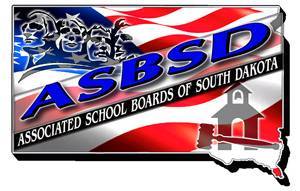Capital Outlay sunset date extended
Senate Education committee members stretched the provision allowing school districts to use capital outlay funds for certain insurance, energy, utilities and motor fuel costs at Tuesday’s meeting.
The committee voted 7-0 to extend the sunset date to 2018 as part of Senate Bill 194. The provision, introduced in 2009, was set to expire in 2014. ASBSD delegates voted to support the extension of the sunset date at November’s Delegate Assembly.
“The bill offers school districts, that may need it, some relief on certain expenditures,” Executive Director Wade Pogany said. “Right now, with funding where it is for schools any flexibility helps.”
Bill sponsor Sen. Bill Van Gerpen (19) testified that school districts could see a more than 10 percent increase to health insurance costs and Milbank Superintendent Tim Graf told the committee his district saw the flexibility “as really the only realistic option to maintain even basic education services.”
During the committee’s discussion, Sen. Mark Johnston (12) noted each year since the capital outlay flexibility had been in place the total dollar amount has increased. In fiscal year 2009 school districts flexed a little more than $1 million with steady increases in FY 2010 and 2011 and topping out at over $15 million in FY 2012.
The bill now heads to the Senate floor.
Senate Bill 76 hoghoused
Rerouted from the Senate floor to the Senate Education committee, Senate Bill 76 underwent an overhaul on Tuesday.
The bill, which originally passed through Senate Education more than two weeks ago, was hoghoused by the committee and referred to the Senate Appropriations committee. SB 76 originally appropriated $150,000 in state funding for Education Service Agencies, which lost funding in 2009.
The new version of the bill creates an innovation grant program for ESAs and school districts. Sen. Johnston told committee members the updated SB 76 combined parts of the original version and House Bill 1133, which was deferred to the 41st legislative day by the House Education committee.
Johnston said the bill would “create business processes to ensure the long-term survivability of the (small) districts and most importantly improve student achievement.”
Johnston said he expected the hoghoused version to exceed the $150,000 attached to the previous version, but he did not specify an amount. Currently, there is one dollar attached to the bill.
The state Board of Education would select grant recipients from school districts and ESAs that apply for funds. Applicants must have matching funds to be eligible.
ASBSD will continue to monitor the bill, check the ASBSD blog and bill tracker for updates.
